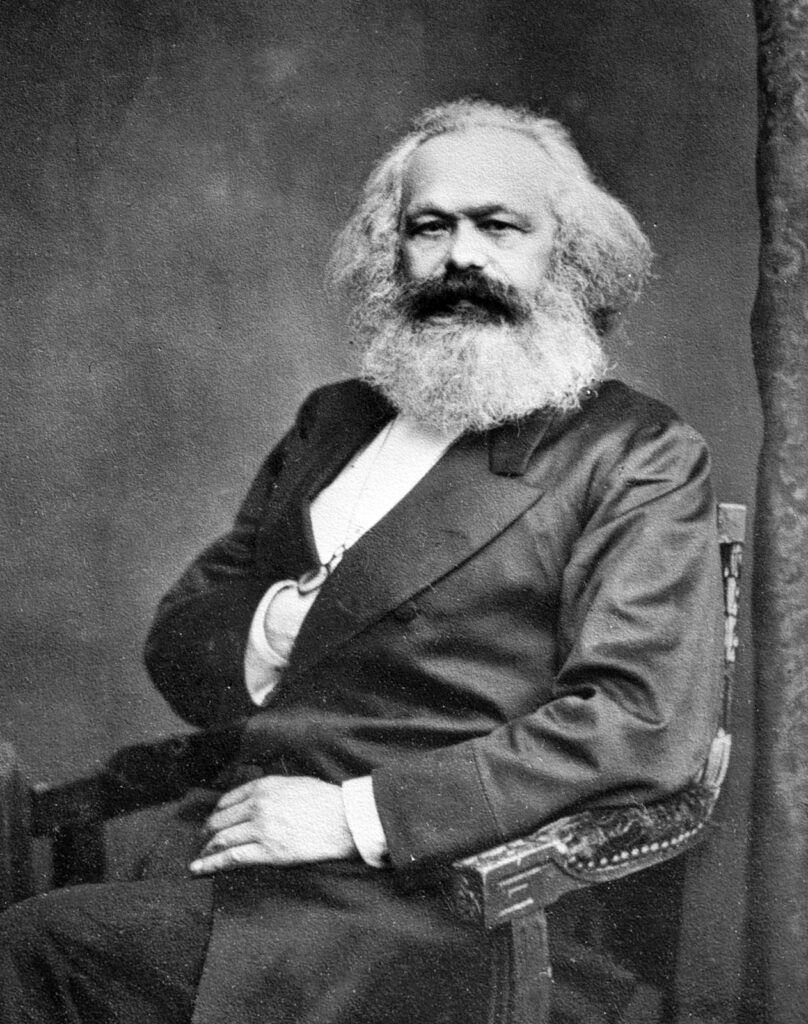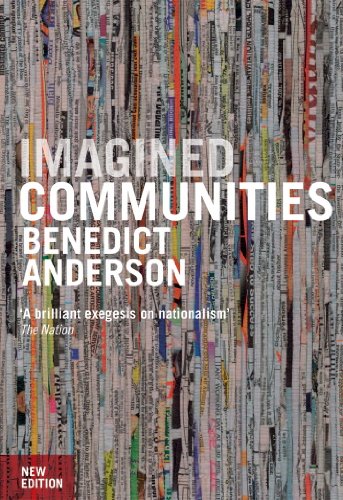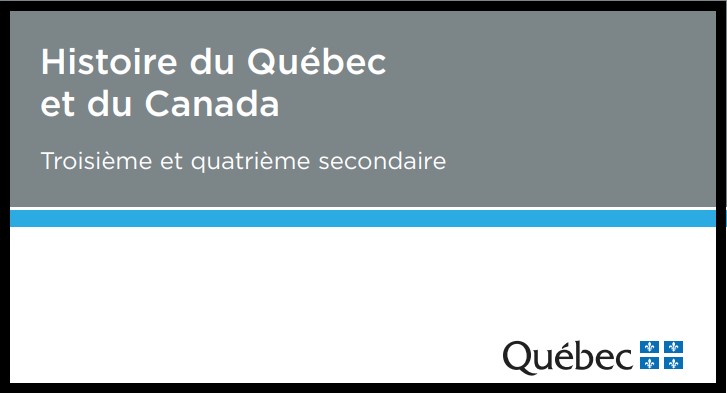It’s clear. It’s compelling. It’s devastating.
It’s a narrative.
Whether personal, political, or historical, a narrative is a coherent, cohesive story that provides clear, if simplified, explanations and expresses specific values. As such, a narrative not only describes events, but often proposes a certain course of action.
A narrative offers intellectual shortcuts: if you know the general storyline, you can make assumptions. At the same time, it acts as a hopper. Facts that do not square with the narrative will be either left behind entirely or reshaped until they are made to fit smoothly with the other items.
At last, narratives are not built into the fabric of the universe. We, as social groups and societies, create and nourish them. Once widely shared, they are not easily eroded.
Marxism, as a school of historical thought, is a perfect example. It posits that social and political structures are the direct product of economic conditions. When those conditions change, emerging social groups challenge existing power structures, leading to a clash and a revolution. Karl Marx believed that successive economic phases and their social systems appeared in a predictable order in all places—leading (notably) from medieval manorialism to commercial and industrial capitalism and, ultimately, to an uprising of the working class that would usher a final stage of history, communism. Marxism is an analytical template inspired by Western European history that could be easily transposed to make sense of events elsewhere around the world—riding roughshod, if taken too literally, over local particularities and inconvenient facts. As we know from political Marxism, this school of thought also expresses specific values and prods workers towards class consciousness.

We easily perceive Marxism to be a constructed historical narrative because it has been challenged historiographically and discredited politically. In other words, we are aware of its narrative aspect because, in the West, it has long stood outside of our mainstream intellectual (or ideological) climate. Other narratives are, however, so deeply imbedded in our families, in our communities, and so forth, that we could easily miss the fact that they too are constructed—and not necessarily built on a foundation firmer than Marxism’s. Nationalism is one such narrative.
A nationalist historical narrative traces a specific group of people, often defined by its language, customs, and religion, back in time; situates this people on a historic territory; places it in relation to outsiders; and, by asserting its legitimacy, often supports a claim to self-determination. To make that happen, historians and other intellectuals have to string facts in a very specific way. There is, actually, such a thing as nationalism studies, a field that explores how these collective self-perceptions emerge. The most famous and influential work of this kind may be Benedict Anderson’s Imagined Communities (1983). With a notable focus on the Americas and Europe, Anderson studied the process by which people hundreds of miles apart, who had never met one another and lived in altogether very different circumstances, came to identify as part of a larger, abstract entity. In other words, how did the narrative itself come to be?
This is highly relevant to Quebec, where nationalist histories abound—and works in nationalism studies do not. In other words, the nation is often a given rather than a historical phenomenon to be scrutinized just like, say, the War of 1812. Still, every now and then, historical narratives do make the front page and provide a moment of reflection. Well-meaning public debates turned to controversy in 2011 and 2013, showing, ultimately, the inelasticity of the dominant narrative.
The more recent debate stemmed from an effort by the Parti Québécois to reform the history curriculum in high schools. A group modestly called Coalition pour l’histoire took issue with the minister’s appointed advisors and sought to have its voice heard in the refashioning of course content. This was hardly an anti-PQ movement: the Coalition’s membership included the Société Saint-Jean-Baptiste and the Mouvement national des Québécois. If anything, this was a quest for wider influence. The jockeying for position made the papers, partly because different groups feared that either federalists or sovereigntists were gaining an upper hand and would rewrite the past in their own image. Most public interveners at least agreed that history would be taught more effectively if the high school curriculum were reorganized.

For its part, the first battle, in 2011, revolved around history education at the CEGEP and university levels. A report issued jointly by the Coalition pour l’histoire and the Fondation Lionel-Groulx deplored that “national” history (a clear political narrative of French-speaking Quebec’s history) was nearly nonexistent in the province’s universities. The report missed the mark partly because many professors, whatever their specific areas of study may be, will teach Quebec or Canadian history survey courses. Nor are social and political history mutually exclusive. The “political” has been redefined beyond the focus on legislation and the careers of well-known male figures.
The report’s authors nevertheless expressed a genuine fear that the narrative was slipping from under them—that it was being fractured. With it, Quebec’s identity and destiny would be lost. A nation’s common march across time seemed disarticulated as historians focused on groups that had their own particular interests: the working class, women, political dissidents, immigrants, religious and linguistic minorities, Indigenous nations, gays and lesbians, etc. With characteristic tactlessness, Mathieu Bock-Côté gave away the game by calling out the evil of multiculturalism, which undercut the story of “nous.” To put it simply, there was a correct way of pitching the story of Quebec—one way of fitting discrete facts with one another, one interest that subsumed all others and that was in its own way exclusionary.
The debate played out in the press; it got nasty. Outsiders might easily miss the fact that it still plays out. And it’s still nasty. Part of the problem is the lack of self-awareness when it comes to narratives or, to put it differently, a conflation of narrative with objectivity. “Our story” has been made into reality rather than an interpretation or something that had to be authored or constructed over time. It makes sense: narratives tend to evacuate ambiguity and they hold a lot of power.
In Quebec, the dominant story—which allows intellectual shortcuts—goes something like this:
French settlers came to a sparsely inhabited area and became friends of the Native population. Though a peaceable people, these settlers defended their colony in times of war until France abandoned them. The British regime brought economic marginalization and political oppression. The aspirations of a nation were brutally repressed in 1837-1838. French-Canadian political leaders and clergy made compromises and left Quebec in a state of underdevelopment until the Quiet Revolution brought a new spirit of self-affirmation. Quebec has emancipated itself from its clerical past but its language and culture are still threatened by federal meddling and multiculturalism.[1]
Outside of academic circles, any effort to nuance any of these claims proves an uphill battle—at least when it comes to persuading people who are seeing their bedrock assumptions about the past shaken or threatened. Historians who add such nuance cannot expect to rapidly untangle the prevalent narrative without a paradigm shift that would stem from a large body of new evidence. These challenges are a problem, as happens anytime a dominant or hegemonic viewpoint escapes any kind of scrutiny. Narratives have their utility; but they can also become so ubiquitous as to narrow people’s intellectual horizons.
* * *
History has several definitions. One is the shape we give to past events—the story we create around facts (as opposed to a mere listing of events, which contains neither explanations nor interpretations). History can also be a field of inquiry, a toolkit. After all, historians aren’t mere storytellers. They have a duty to scrutinize and challenge and tweak and keep pushing towards an ever-more accurate representation of the past. They cannot afford to approach narratives uncritically.

In this regard, one specific intervention in the 2013 debate on history education merits our lasting attention. Four members of the Association québécoise pour l’enseignement en univers social (AQEUS) insisted not on the narrative itself, but on what the historical toolkit might look like in high schools. They highlighted the value of the social sciences and humanities in the making of discerning, critical citizens capable of taking part in societal debates. The authors also echoed UNESCO in its rejection of romantic histories, inherited from the nineteenth century and based on the historical and territorial legitimation of specific political projects. They added:
History in an educational setting should at no time serve an indoctrinating project, whatever that project may be. On the contrary, the perspective it provides enables students to make intelligent sense of the present. The teaching of history also helps students understand that any historical narrative is an interpretation. To suggest that only one interpretation has legitimacy is akin to preaching rather than teaching. History is not unambiguous. That is why we mustn’t reduce teaching to the memorization of a narrative by students. Attention to a diversity of sources and to a plurality of opinions and historiographical schools helps develop critical thinking, an essential aspect of the historical discipline. In schools, history should not be taught to mold future sovereigntists or future federalists. Rather, in light of learning opportunities in the classroom, it should produce enlightened citizens ready to make the political, social, and economic decisions that they deem best.
If we don’t insist on this view of history, however lofty it may be, we will quickly see a closing of political options and a closing of minds—and the consequences are likely to be devastating.
[1] The Franco-American world has its own dominant stories, but, as it is a small, self-selected, and dispersed community, there is a better opportunity to scrutinize the past by drawing attention to lesser-known or forgotten events through novel research and by employing new conceptual approaches.
Leave a Reply